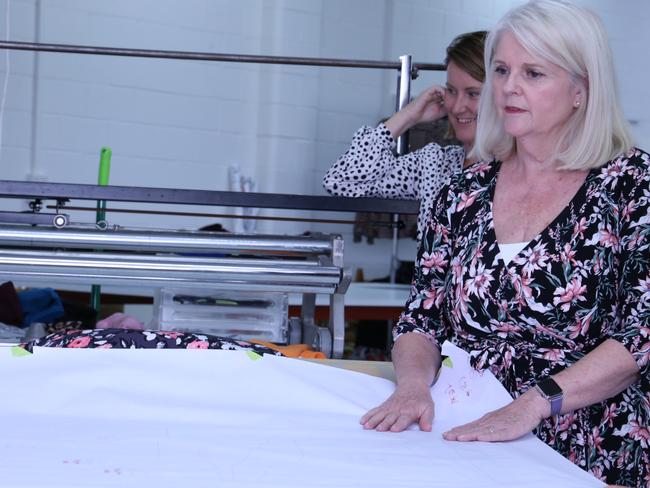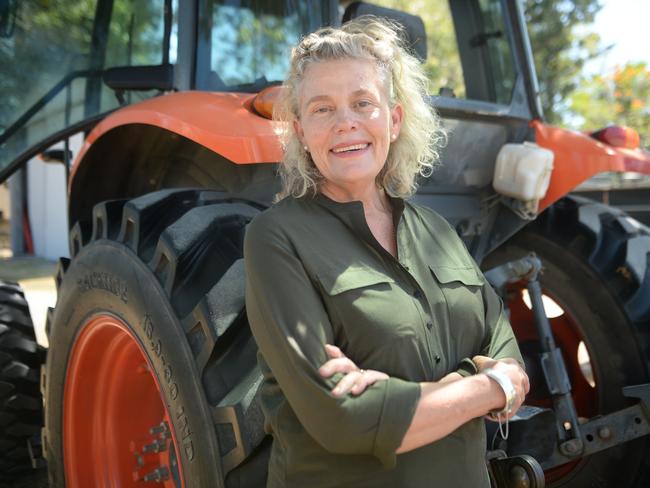Australia looks to rely less on China for manufacturing
The Australian Government and industry are looking to refocus on making things onshore, to boost Australia’s sovereign capabilities and help the economy.
Companies
Don't miss out on the headlines from Companies. Followed categories will be added to My News.
The manufacturing industry is set for a revival as Australia becomes more self-sufficient in response to the coronavirus pandemic, which exposed an over-dependence on China.
After decades of winding back Australian manufacturing, the Government and industry are looking to refocus on making things onshore, to boost Australia’s sovereign capabilities and help the economy.
High-tech devices, medical supplies, pharmaceuticals and food processing were areas where Australia could increase local manufacturing, shoring up domestic supplies and weening itself off Chinese supply chains and export custom.
The Government has already increased Australia’s strategic fuel reserves with a $94 million purchase of oil.
Industry Minister Karen Andrews said the COVID-19 crisis had presented “a unique opportunity to reshape Australian manufacturing.’’
While defence and high-tech space manufacturing were being explored prior to the emergence of the virus which shut down global trade in January, Australia was now looking to ensure it could produce medical equipment and medicines onshore.
“What COVID has done is give us the opportunity to … start to restructure what manufacturing is going to look at,’’ Ms Andrew said.

She said Australia’s high-wage economy meant labour costs were higher than in many other countries, and Australia could not compete in manufacturing basic commodities.
However, Ms Andrews said she “absolutely’’ wanted to ensure Australia’s sovereign capacity in the production of items such as face-masks, ventilators, personal protective equipment for health workers such as gowns, and medicines for the national stockpile.
“What I am doing from here is working through all of the issues we have come across during the COVID crisis so we know what we have had difficulty finding so far,’’ she said.
Ms Andrews said she believed a move by businesses away from Chinese supply chains was “inevitable, simply because so many businesses and the governments at all levels had to look outside China’’ during the coronavirus lockdown.
“While China had been a source of input material for us, when they have not been able to provide it we have had to look at other nations, as well as developing our own capabilities,’’ she said.
“I think this has demonstrated there was too high a reliance on one country – irrespective of who that one country is – there was too high a reliance and we were able to work around it but we don’t want to be in that situation again.’’

MORE NEWS
Billion dollar plan to make more medicines in Australia
Dossier lays out virus case against China
‘Move away’: Aussie expats warned as China orders arrests
Patient zero: How the coronavirus became a pandemic
President of the National Farmers Federation Fiona Simson said the pandemic had given Australia the chance to prioritise bringing agriculture production onshore.
She said China was a major market for many agriculture products and the “cessation of that market pretty much overnight obviously did have a pretty big impact on some of those sectors.’’
“So the lesson is we definitely shouldn’t have all our eggs in one trading basket,’’ she said.
Ms Simson likened the blow to the export market caused by the coronavirus lockdown to that which occurred in 1973 when the United Kingdom joined the European Union, and dramatically reduced its trading with Australia.
She said the recent development of robotic technology had made it viable to produce Australian agriculture onshore rather than send it to other countries for processing and value-adding.
“This will be part of a bigger discussion about how self-sufficient we are in Australia and how dependent we’ve become on the global community for some of our things,’’ she said.
“We’ve already seen (the Government) move to increase our fuel reserves. So that’s a very big hint that Government is up for the discussion about how we can become more self-sufficient.’’
Ms Simson said Australia did not have adequate domestic supplies of rice, and would need to boost production to ensure adequate supplies.
She said cotton, which was grown here then sent in bales offshore for spinning, mainly to Thailand, before being brought back to be sold or used for clothing, was ripe for value-adding onshore.
Another area of growth could be vegetables, which were grown in Australia but shipped offshore where other countries turned them into much more valuable heat-and-eat ready meals.
“The Government needs to be committed to helping industry find those opportunities because long term it will create enormous self-sufficiency and sustainability,’’ she said.
Originally published as Australia looks to rely less on China for manufacturing


